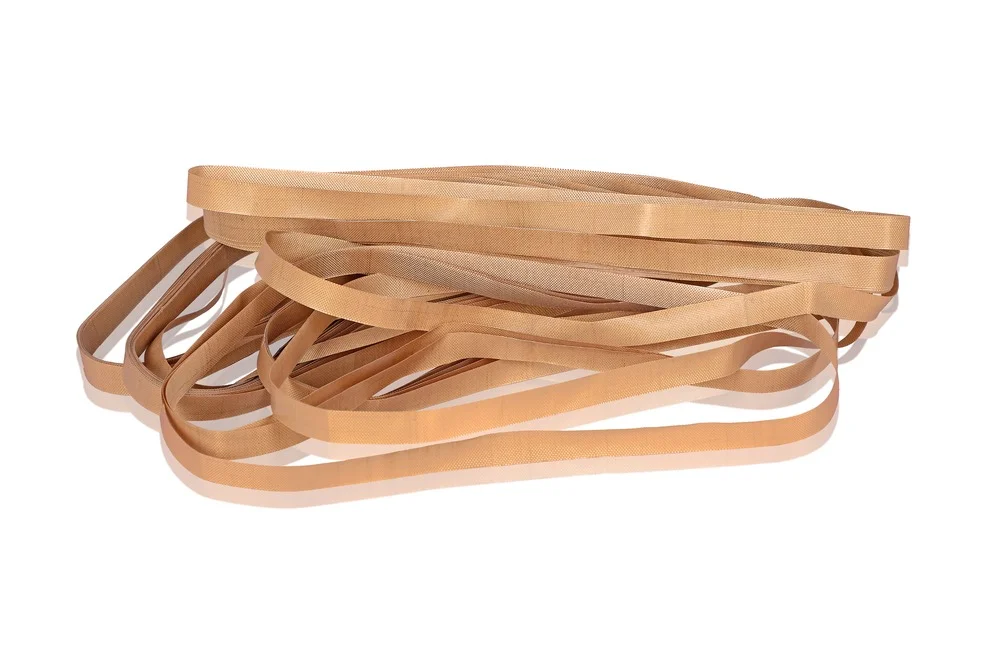Teflon belts are widely used in various industrial applications due to their exceptional properties, such as high-temperature resistance, chemical resistance, and low friction coefficient. When selecting a Teflon belt or Polyurethane cord for your specific industrial needs, it is crucial to consider several key factors. We will discuss the top five factors to consider when choosing a Teflon belt, ensuring you make an informed decision for your industrial operations.
Temperature Resistance
One of the most important factors to consider when selecting a Teflon belt is its temperature resistance. Teflon belt or PU cords are known for their exceptional ability to withstand high temperatures, making them suitable for baking, drying, and heat-sealing applications. However, it is essential to understand the specific temperature requirements of your process. Different Teflon belts have different temperature ratings, and exceeding the temperature limit can cause the belt to deteriorate or fail prematurely. Therefore, ensure that your Teflon belt can handle the maximum temperature your process requires.
Chemical Resistance
Chemical resistance is another critical factor to consider when choosing a Teflon belt. Industrial processes often involve exposure to various chemicals, solvents, and corrosive substances. Teflon belts are known for their excellent resistance to chemicals, making them suitable for applications in the chemical processing industry, food production, and pharmaceutical manufacturing. However, verifying that the belt material is compatible with the specific chemicals used in your process is essential. Consult with Teflon belt manufacturers or suppliers to ensure that the belt’s chemical resistance meets your requirements and can withstand the chemicals in your application.
Load-Bearing Capacity
Teflon belts are often subjected to significant loads and tensions in industrial applications. Therefore, it is crucial to consider the load-bearing capacity of the belt. The load-bearing capacity of a Teflon belt, a type of industrial belts, depends on various factors, including its construction, width, thickness, and the material used for reinforcement. Assess the specific load requirements of your application, such as the weight of the products being transported or the tension required for proper functioning, and select an industrial belt that can handle the expected load without premature wear or failure. Additionally, consider the presence of reinforcing elements, such as polyurethane cords (PU cords), which enhance the belt’s strength and durability.
Surface Properties
The surface properties of a Teflon belt play a crucial role in its performance and suitability for specific applications. Teflon belts are known for their low friction coefficient, allowing smooth movement and reducing the risk of product damage or marking. This property makes them ideal for conveyor systems or release surfaces. Additionally, the surface of the belt should be non-stick to prevent material buildup and facilitate easy cleaning. Consider the specific requirements of your application, such as the need for easy release of sticky materials or the prevention of contamination, and select a Teflon belt or PU cord with the appropriate surface properties to ensure optimal performance.
Belt Construction and Design
The construction and design of the Teflon belt are essential factors to consider as they determine its overall durability and functionality. Look for belts with robust construction and high-quality materials that can withstand the rig of your industrial processes. Consider the belt’s flexibility, joint design, and the presence of reinforcing elements such as polyurethane cords (PU cords) to enhance strength and stability. A well-constructed Teflon belt will offer reliable performance, minimize maintenance requirements, and have a longer lifespan. Additionally, consider the ease of installation and any special requirements for belt tracking or tensioning in your application.
Conclusion
When choosing a Teflon belt for industrial applications, it is crucial to consider key factors such as temperature resistance, chemical resistance, load-bearing capacity, surface properties, and belt construction. By carefully assessing these factors, you can select a Teflon belt that meets the specific requirements of your application and ensures optimal performance and longevity.
Jigna Sales offers a wide range of high-quality Teflon belts designed to excel in various industrial applications. Our Teflon belts are manufactured using premium materials and advanced techniques to deliver exceptional temperature resistance, chemical resistance, load-bearing capacity, surface properties, and durability. Whether you need a Teflon belt for food processing, packaging, or any other industrial process, we have the expertise and products to meet your needs. Contact us today to learn more about our Teflon belts and how they can benefit your industrial operations.



